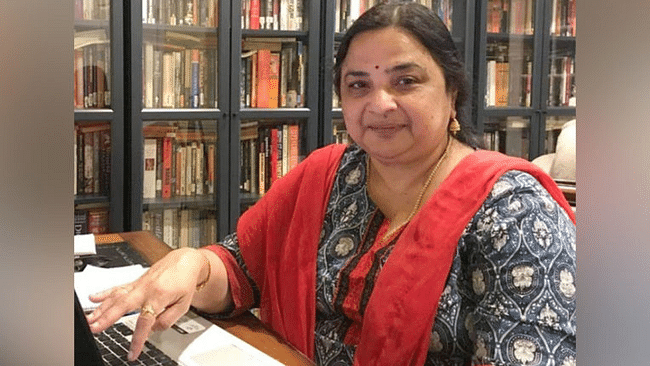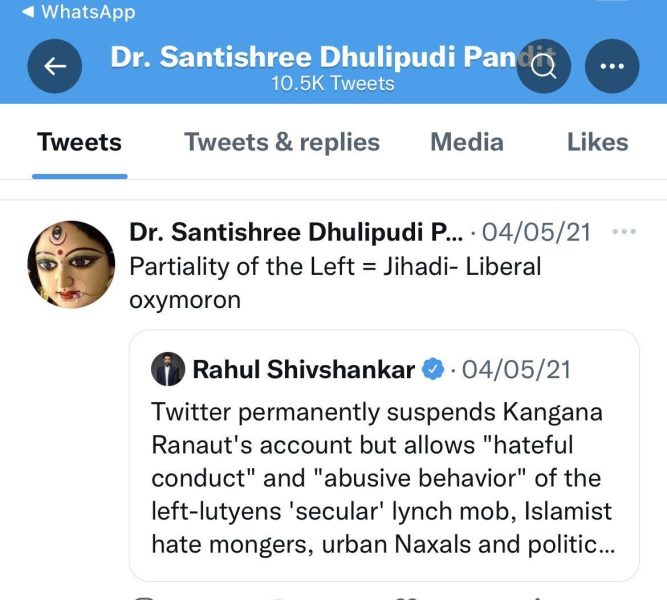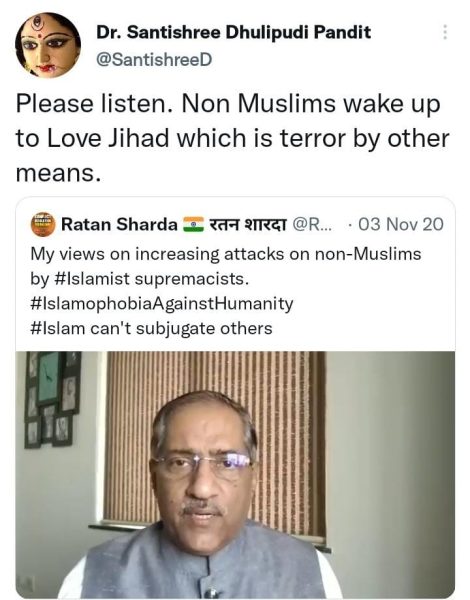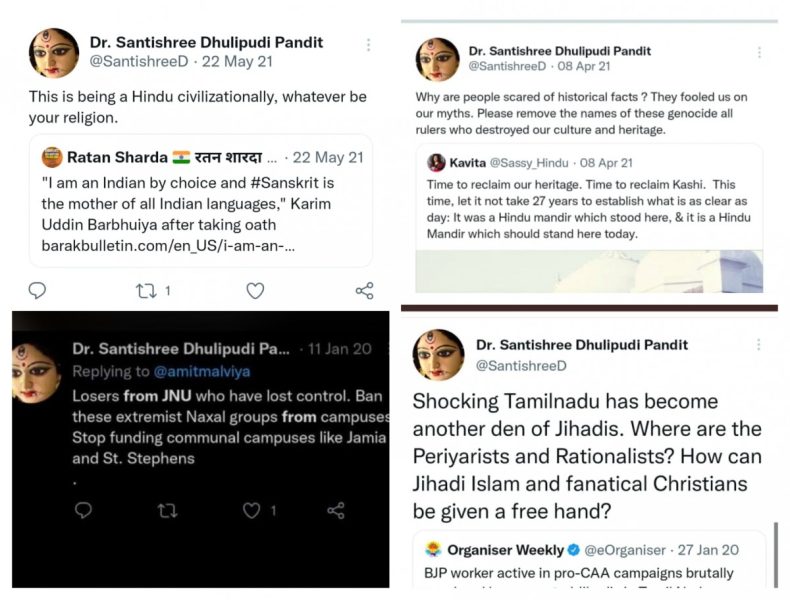
New JNU V-C brings with her a bagful of blemish

The Ministry of Education’s (MoE) decision to appoint Santishree Dhulipudi Pandit, a Professor of political science at Savitribai Phule Pune University (SPPU), as the new vice-chancellor (V-C) of Jawaharlal Nehru University (JNU), has whipped up a storm.
Prof. Pandit will succeed M. Jagadesh Kumar, who was recently appointed chairman of the University Grants Commission, and her tenure will be for five years. She will be the first woman to lead the institute.
Although her appointment will send a positive message to advocates of equality, Prof. Pandit’s career has not been entirely blemish-free.
According to reports, her parent university withheld her increments on several occasions for alleged misconduct. (The SPPU informed the Union government of this fact before her appointment).
Soon after the MoE’s announcement, there was an uproar on social media over controversial tweets from an unverified Twitter handle in her name (@SantishreeD), calling Jamia Millia Islamia and St Stephen’s College “communal campuses”, using slurs against Christians and describing civil rights activists as “mentally-ill jihadists”.
In one tweet, @SantishreeD attacked Left-liberals as “jihadis” in response to a TV anchor’s comment condemning the suspension of actor Kangna Ranaut’s Twitter handle after she called for a genocide against Indian Muslims. In another the user called Tamil Nadu a “den of Jihadis”.
The tweets were later deleted.



Prof. Pandit is an alumnus of JNU, from where she completed her MPhil and PhD in International Relations. She was born in Russia to Dr. Dhulipudi Anjaneyulu, a journalist-turned-civil servant, and Mulamoodi Adilakshmi, a Professor of Tamil and Telugu at Leningrad Oriental Faculty Department. She graduated from Presidency College, Madras, and was a gold medallist.
The polyglot, who speaks six languages including Sanskrit, started her teaching career in 1988 at Goa University as a lecturer of political science. Besides her current position at SPPU and a guide to several MPhil and PhD students, she has taught papers on mass media audiences, media research, politics and communication.
She has published three books, several booklets, contributed nearly 100 chapters in edited books and more than 180 research papers.
She has been publicly critical of what she claims are incorrect narratives in Indian history. In a webinar to commemorate the 126th birth anniversary of Netaji Subhas Chandra Bose, organised recently by the Political Science Department of Delhi’s Sri Venkateswara College, Pandit criticised NCERT for focusing too much on the Mughals and the “Nehru-Gandhi dynasty.” She also claimed that the violence witnessed during “Islamic invasions” had been whitewashed from history.
“The myth that the Indian national movement was extremely nonviolent, this seems to be a carefully constructed narrative… Contribution of revolutionaries to Indian national movement has been obliterated… You may agree with them or not agree with them but how can you say that this narrative doesn’t exist? Savarkar was a revolutionary, you may agree with him or not but please read Savarkar before condemning him. That is my plea,” she said.
This press release from the new JNU VC is an exhibition of illiteracy,littered with grammatical mistakes (would strive vs will strive;students friendly vs student-friendly;excellences vs excellence).Such mediocre appointments serve to damage our human capital & our youth’s future pic.twitter.com/tSanmy3VfR
— Varun Gandhi (@varungandhi80) February 8, 2022
On Monday, Prof. Pandit said her immediate focus would be to provide “clean administration, students friendly and gender sensitive environment for academic excellences”. She said JNU would strive to implement the new National Education Policy and focus on “constructing Indo-centric narratives”.
Varun Gandhi, the BJP MP from Pilibhit, who has often been critical of the government, called Prof. Pandit’s appointment “mediocre”. “Such mediocre appointments serve to damage our human capital & our youth’s future,” he said in a tweet.
The JNU Teachers’ Association on Tuesday called upon the new V-C to “restore the sanctity of statutory bodies” and engage in transparent decision making.
“As the head of the university, JNUTA specifically calls upon her to restore the sanctity of statutory bodies, engage in transparent dialogic processes of decision making, observe the principle of seniority by rotation in matters of appointments of Deans and Chairpersons, maintain rigorous financial scrutiny in all administrative matters and ensure implementation of robust regulatory mechanisms to maintain checks and balances, such that the next five years of her tenure are peaceful, productive and academically enabling for the diverse spectrum of opinions that a university like JNU produces,” it said.

